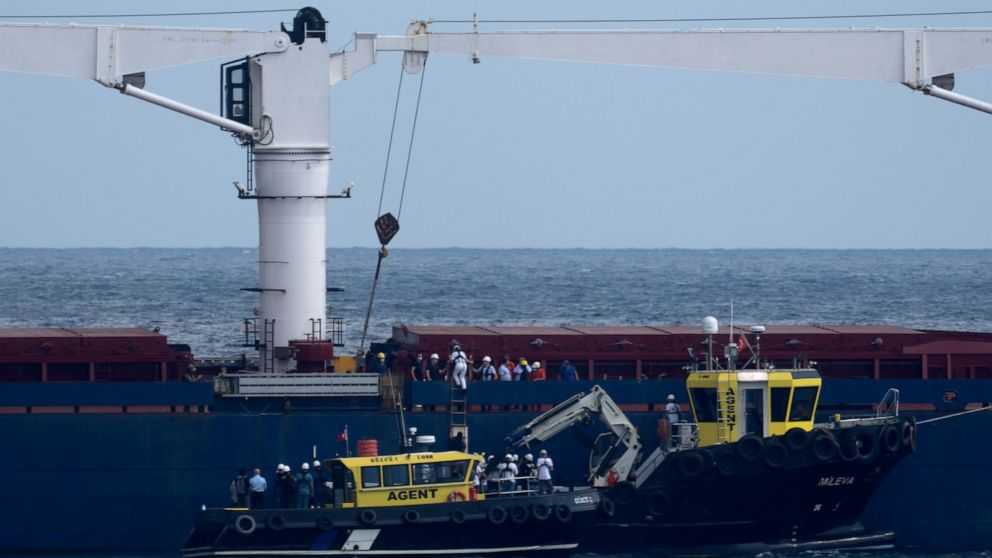BEIRUT — A ship bringing corn to Lebanon’s northern port of Tripoli normally would not cause a stir. But it’s getting attention because of where it came from: Ukraine’s Black Sea port of Odesa.
The Razoni, loaded with more than 26,000 tons of corn for chicken feed, is emerging from the edges of a Russian war that has threatened food supplies in countries like Lebanon, which has the world’s highest rate of food inflation — a staggering 122% — and depends on the Black Sea region for nearly all of its wheat.
The fighting has trapped 20 million tons of grains inside Ukraine, and the Razoni’s departure Monday marked a first major step toward extracting those food supplies and getting them to farms and bakeries to feed millions of impoverished people who are going hungry in Africa, the Middle East and parts of Asia.
“Actually seeing the shipment move is a big deal,” said Jonathan Haines, senior analyst at data and analytics firm Gro Intelligence. “This 26,000 tons in the scale of the 20 million tons that are locked up is nothing, absolutely nothing … but if we start seeing this, every shipment that goes is going to increase confidence.”
The small scale means the initial shipments leaving the world’s breadbasket will not draw down food prices or ease a global food crisis anytime soon. Plus, most of the trapped grain is for animal feed, not for people to eat, experts say. That will extend the war’s ripple effects for the world’s most vulnerable people thousands of miles away in countries like Somalia and Afghanistan, where hunger could soon turn to famine and where inflation has pushed the cost of food and energy out of reach for many.
To farmers in Lebanon, the shipment expected this weekend is a sign that grains might become more available again, even if at a higher price, said Ibrahim Tarchichi, head of the Bekaa Farmers Association.
But he said it won’t make a dent in his country, where years of endemic corruption and political divides have upended life. Since 2019, the economy has contracted by at least 58%, with the currency depreciating so severely that half the population now lives in poverty.
“I think the crisis will continue as long as operating costs continue to soar and purchasing power falls,” Tarchichi said.
The strife was on sharp display this week when a section of Beirut’s massive port grain silos collapsed in a huge cloud of dust, two years after a massive explosion killed more…
Click Here to Read the Full Original Article at ABC News: International…

